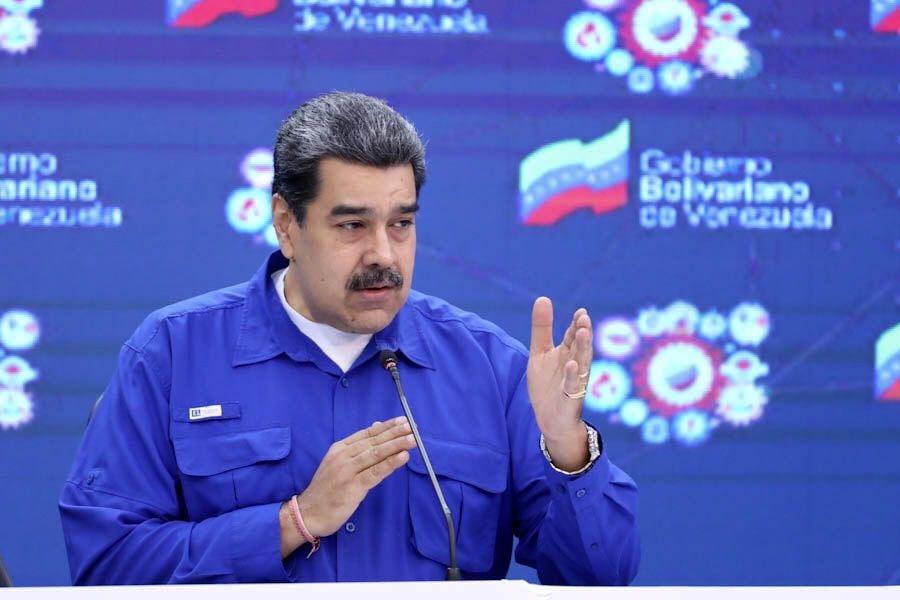Brian Fonseca, the director of Florida International University’s Jack D. Gordon Institute for Public Policy, has facilitated a series of FIU panels to explore the political tension in Venezuela as well as the country’s relationship with the United States.
In his new policy position paper titled Strategic Engagement in Venezuela: Advancing U.S. Interests Under an America-First Agenda, Fonseca proposes that President-elect Donald Trump (R) significantly change his approach to Venezuela. Whereas the first Trump Administration sought a “Maximum Pressure” approach with sweeping sanctions, Fonseca proposes that the incoming Trump Administration should enact an “America-first sanctions policy.”
In Fonseca’s proposal, he posits that “targeted sanctions, strategic economic engagement, and enhanced diplomatic efforts to stabilize Venezuela, foster regional stability, combat corruption, and reinforce U.S. influence” should be prioritized, adding that “any engagement should be predicated on Venezuela releasing illegal detainees and accepting deportations back to the country.”
Venezuela currently does not accept deportation flights from the U.S.
Deportations have been a divisive topic in the final days of the Biden Administration as President-elect Trump has vowed to carry out “mass deportations” once he steps into office. In a recent press conference at Mar-a-Lago, the president-elect commented on deporting Tren de Aragua gang members back to Venezuela, the president-elect threatened the country with economic consequences.
“They’re going to take them back. They’re all taking them back. Yep, and if they don’t, they’ll be met with very harshly, economically,” the president-elect commented. “They’ll all take them back. You know, Venezuela and other countries were not behaving very well with us during Biden’s Administration, and within 24 hours, they were behaving well,” the president-elect added.
Calling President Trump’s “Maximum Pressure” approach of his first administration a failure, Fonseca argues that the approach mixed with the Biden Administration’s policy shortcomings have further complicated Venezuela’s economic and humanitarian crisis, which has only pushed it further into the embrace of the United States’ adversaries like China, Russia, and Iran.
By enacting an “America-first sanctions policy,” the Trump Administration would maintain “targeted sanctions paired with a return to the enforcement of secondary measures that will benefit U.S. businesses and allies while restricting America’s adversaries.”
For example, by granting specific licenses for exclusive U.S. companies in sectors like oil and gas would “secure affordable energy imports, complement U.S. production, and curb inflation.” According to Fonseca, the Biden Administration rightfully integrated this effort into its policy post-General License (GL) 44, but the administration failed to strategically leverage it.
If the incoming Trump Administration follows suit, the effort would “include regulatory measures that ensure direct economic benefits for the U.S. while also acquiring strategic leverage on the ground,” and it would “stabilize Venezuela’s economy, reduce migration pressures, and address immediate humanitarian needs through U.S.-led frameworks promoting financial transparency.”
When compared to the sanctions that were placed on Venezuela in the past, they “inadvertently strengthened the influence of strategic competitors such as China, Russia, and Iran in Venezuela’s energy sector while exacerbating the country’s economic collapse.”
Ultimately, Fonseca suggests that the framework of the new approach should include “stabilizing Venezuela’s economy to reduce migration pressures,” “reasserting U.S. influence in Venezuela’s energy sector,” “strengthening regional stability while countering adversarial influence,” and “promoting democratic governance and human rights through direct engagement.”
On January 10th, Venezuela will inaugurate its next president, which will likely be Nicolas Maduro despite Eduardo Gonzalez Urrutia affirming that he will be traveling to Venezuela to take the leadership post he won earlier this year. On January 20th, the United States will follow by inaugurating President-elect Trump as the 47th president of the country.
Fonseca however shares that the “America-first sanctions policy” does leave open the possibility of adversarial pushback, stressing that the policy can only work if Venezuela releases illegal detainees in the country as well as accepting deportations. “To ensure a sustainable and inclusive approach, the U.S. should maintain active engagement with Venezuela’s opposition, civil society, and diaspora, reinforcing a broad coalition for democratic change,” Fonseca writes in the policy paper. If both countries don’t have a working relationship, “Retaliatory actions by adversarial nations, such as China or Russia, could deepen their toes with Venezuela, undermining U.S. objective,” wrote.
Despite foreign policy experts warning that President-elect Trump is “unpredictable,” Fonseca believes that if the incoming president focuses on retaining sanctions and increasing the issue of specific licenses, enforcing secondary sanctions, mandating financial oversight, achieving tariff-like policy outcomes, prioritizing economic stabilization and migration mitigation, facilitating energy exports, prioritizing debt control and asset privatization, negotiating debt control, and reopening the American embassy, the “America-first sanctions policy” will yield more successful results than the “Maximum Pressure” approach did during the first Trump presidency.
Source link : http://www.bing.com/news/apiclick.aspx?ref=FexRss&aid=&tid=67646620a0564d46b5fc0691a624f962&url=https%3A%2F%2Ffloridianpress.com%2F2024%2F12%2Ffiu-director-pens-america-first-sanctions-policy-for-venezuela%2F&c=13280740357532611590&mkt=en-us
Author :
Publish date : 2024-12-19 03:58:00
Copyright for syndicated content belongs to the linked Source.
